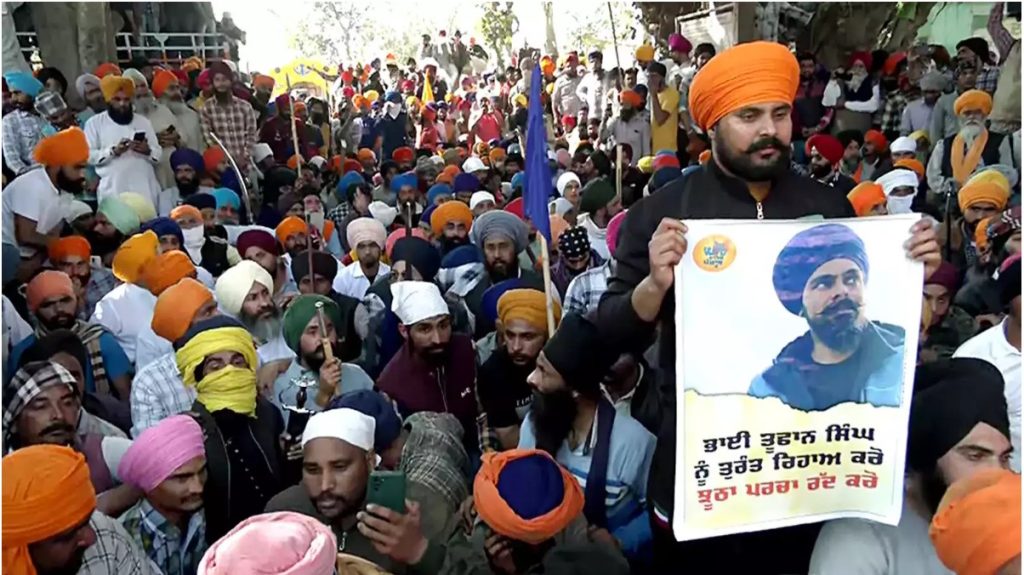Many BJP supporters are calling for central rule to be imposed on the state to combat terrorism. But that will only enhance the Khalistani narrative of Hindu oppression of Sikhs
The spectre of Khalistan haunts Punjab again. After two major Khalistani clashes with the police, the Bharatiya Janata Party (BJP) has castigated the state government (run by the Aam Aadmi Party) for collapsing public order. BJP trolls on social media are clamouring for central rule to be imposed on the state to combat terrorism. That would be a terrible error.
On February 23, pro-Khalistan preacher Amritpal Singh and followers waving swords and guns, attacked the police in Ajnala, demanding the release of an associate arrested for kidnapping. Six policemen were injured but the authorities did not shoot or arrest the attackers, who were assuaged with assurances that the kidnapper would be released. Later the police said they could not stop the attackers since they carried a copy of the holy Granth Sahib as a shield. If Khalistanis can get immunity by just carrying the holy book, the battle for Punjab has been lost already.
Two weeks earlier, Sikh agitators demanding the release of Khalistanis jailed for 20 years clashed with the police in Chandigarh. The police retreated because, as one of them said, “Had we not run away, the protesters would have killed us.” The attackers seized a teargas gun, ammunition and other police equipment. The police filed a first information report (FIR) but did not arrest anyone. No political party in Punjab dared call for a crackdown on the Khalistanis.
Inevitably, Pakistan is fishing in troubled waters. It gave sanctuary, money and weapons to terrorist groups during the Khalistani reign of terror. Today it has gone further. Former inspector general of the Border Security Force (BSF) Prakash Singh says that waves of drones are delivering weapons and drugs to 70 criminal gangs with 500 members with Khalistani links. “Pakistan has been dropping weapons and drugs through drones on a large scale. According to the BSF, there is virtually a bombardment of drones.” This is shocking. Yet this too is being swept under the carpet by all Punjab parties.
Victimhood narrative
The Sikh diaspora has always favoured a separate Khalistan, and promoted a false narrative of Hindu oppression of Sikhs. The diaspora is now richer and has more political clout than ever in places like Canada. It too will fish in troubled waters.
The biggest problem is tacit support from the Sikh priesthood. Earlier it encouraged Bhindranwale and gave him sanctuary in the Golden Temple. Ranjit Singh, a carpenter who murdered the Nirankari Baba, head of an apostate Sikh sect, was made jathedar of the Akal Takht in 1996. I cannot think of any other instance of murder propelling a person to top religious office.
The Akal Takht has declared the killers of Indira Gandhi to be “martyrs of Sikhism”. A Sarbat Khalsa meeting in 2015 appointed Jagtar Singh Hawara as jathedar of the Akal Takht, his main achievement being that he helped kill Congress chief minister Beant Singh who had crushed the Khalistan movement in the 1990s.
The lesson is clear. As a Hindu nationalist party, the BJP would be dead wrong to attempt a central crackdown in Punjab. That will just enhance the Khalistani narrative of Hindu oppression of Sikhs.
Within the Sikh community, is another Beant Singh or KPS Gill in view? Alas no. It seems that matters in Punjab will get much worse before they get better.
This article was originally published by The Times of India on March 4, 2023.


